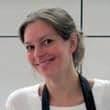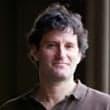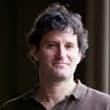This course is part of The Science of Cooking.
Join top chefs and Harvard researchers on a fascinating journey through the science of cooking. This unique course combines culinary expertise with scientific principles, exploring how chemistry and physics transform ingredients in the kitchen. Through hands-on experiments in your own kitchen-laboratory, you'll discover the molecular basis of cooking techniques, learn about heat transfer, phase transitions, and chemical reactions that influence food texture and flavor. Each module features renowned chefs demonstrating their signature techniques, followed by Harvard experts explaining the underlying scientific concepts. From mastering the perfect egg to understanding chocolate tempering, you'll gain both practical cooking skills and a deeper appreciation of the science that makes great food possible.
4.7
(22 ratings)
1,97,636 already enrolled
Instructors:
English
English
What you'll learn
Understand scientific concepts underlying everyday cooking and haute cuisine techniques
Apply principles of physics engineering and chemistry to cooking
Become an experimental scientist in your own kitchen
Master the relationship between molecular structure and food properties
Learn professional cooking techniques from world-renowned chefs
Analyze the chemistry behind flavor development and taste perception
Skills you'll gain
This course includes:
PreRecorded video
Graded assignments, exams
Access on Mobile, Tablet, Desktop
Limited Access access
Shareable certificate
Closed caption
Get a Completion Certificate
Share your certificate with prospective employers and your professional network on LinkedIn.
Created by
Provided by

Top companies offer this course to their employees
Top companies provide this course to enhance their employees' skills, ensuring they excel in handling complex projects and drive organizational success.





There are 6 modules in this course
This comprehensive course bridges the gap between haute cuisine and science, exploring the fundamental principles of chemistry and physics through the lens of cooking. Students learn about molecular interactions, heat transfer, phase transitions, and chemical reactions that occur during cooking processes. The curriculum combines demonstrations from world-renowned chefs with scientific explanations from Harvard researchers, allowing students to understand both the practical and theoretical aspects of cooking. Through hands-on experiments in their own kitchens, students learn to apply scientific principles to improve their cooking techniques while gaining a deeper understanding of how and why certain culinary methods work.
Molecules, moles, flavor, and pH
Module 1
Energy, temperature, and heat
Module 2
Phase transitions
Module 3
Diffusion and Spherification
Module 4
Heat Transfer
Module 5
Candy
Module 6
Fee Structure
Individual course purchase is not available - to enroll in this course with a certificate, you need to purchase the complete Professional Certificate Course. For enrollment and detailed fee structure, visit the following: The Science of Cooking
Instructors

6 Courses
A Pioneering Educator Bridging Science and Culinary Arts
Dr. Pia Sörensen serves as Senior Preceptor in Chemical Engineering and Applied Materials at Harvard's School of Engineering and Applied Sciences, where she directs the innovative Science and Cooking program. Her academic foundation includes a bachelor's degree in molecular biophysics and biochemistry from Yale University and a PhD in chemical biology from Harvard University. As lead instructor of the popular general education course "Science and Cooking: From Haute Cuisine to Soft Matter Science," she collaborates with world-renowned chefs to demonstrate scientific principles through culinary applications. Her teaching portfolio includes developing novel courses like "Flavor Molecules of Food Fermentation: Exploration and Inquiry" and leading the transformation of traditional courses into successful online formats, including Science&CookingX, one of EdX's largest courses. She has authored several influential works, including the bestseller "Science and Cooking: Physics Meets Food, from Homemade to Haute Cuisine" and two volumes on online chemistry education. Her research interests span from science education innovation to food chemistry and fermentation processes, while her public lecture series regularly draws hundreds of attendees and has garnered up to 160,000 views per lecture online.

5 Courses
A Pioneering Leader in Applied Mathematics and Scientific Innovation
Dr. Michael P. Brenner serves as the Michael F. Cronin Professor of Applied Mathematics and Applied Physics at Harvard University, where he has made groundbreaking contributions across multiple scientific disciplines since 2001. After earning his BS in physics and mathematics from the University of Pennsylvania and PhD under Leo Kadanoff at the University of Chicago, he began his career at MIT before joining Harvard. His research spans an extraordinary range of scientific challenges, from fluid mechanics and materials science to biological systems and atmospheric chemistry. He is particularly known for his work on droplet dynamics, sonoluminescence, and self-assembly of materials. As an educator, he co-created Harvard's popular "Science and Cooking" course, which innovatively teaches scientific principles through culinary applications. His scientific excellence has earned him numerous prestigious honors, including election to the American Academy of Arts and Sciences, the Harvard Ledlie Prize, and selection as a Simons Investigator in Physics. Currently, he leads research initiatives combining traditional applied mathematics with machine learning to accelerate scientific discovery, while maintaining his commitment to understanding fundamental questions in physics and engineering, from the aerodynamics of whale flippers to the behavior of fungal spores.
Testimonials
Testimonials and success stories are a testament to the quality of this program and its impact on your career and learning journey. Be the first to help others make an informed decision by sharing your review of the course.
Frequently asked questions
Below are some of the most commonly asked questions about this course. We aim to provide clear and concise answers to help you better understand the course content, structure, and any other relevant information. If you have any additional questions or if your question is not listed here, please don't hesitate to reach out to our support team for further assistance.



